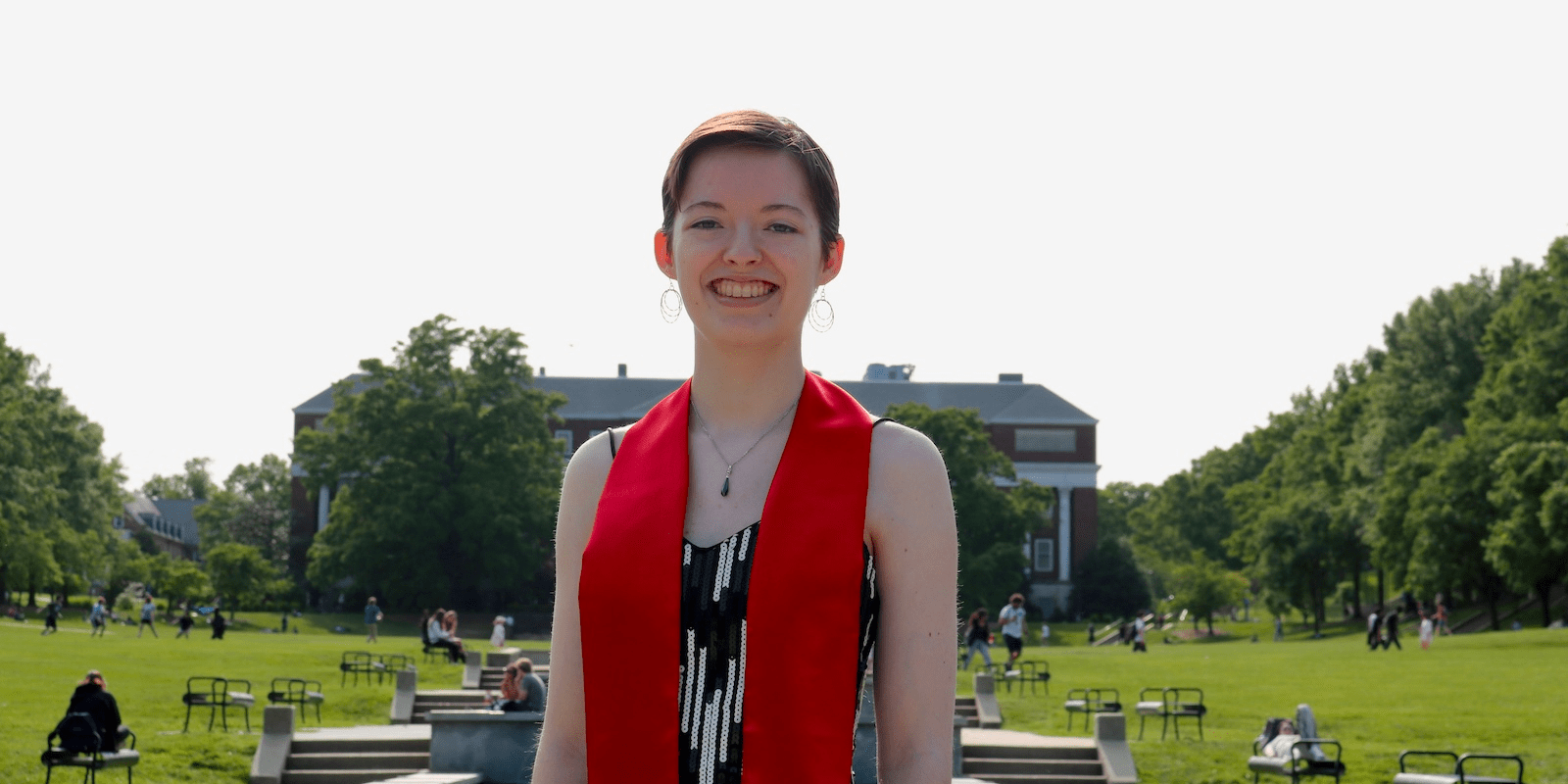
It’s graduation day. When Paulina Leder ‘23 walks across the stage, four years of late nights studying history, conversations in German, and term papers in French come to a close in a singular handshake from the dean of the College of Arts and Humanities (ARHU) and the flash of a graduation photographer’s camera. Leder has joined the ranks of other fearless alumni of one of the top 50 global universities in the world. Her first order of business? One more international exchange with her alma mater.
“You go to another country and you’re reminded that there’s this whole other world out there,” said Leder.
For most, Leder’s undergraduate course load may appear overwhelming at best and impossible at worst. Her resolute attitude towards global learning at Maryland was heavily influenced by her childhood home, including a childhood stint at the German International School in Potomac, Maryland. In an attempt to encourage his children to speak German in the home, Leder’s father would lie and say he didn’t speak any English. You can debate the ethics of his approach, but clearly something stuck. Her childhood home was also the birthplace of her interest in history.
“My interest in history in general began because of the family stories I grew up with. My grandparents were children towards the end of WWII in Germany, and when the Russians invaded, they fled,” said Leder.
Experiences Leder had during her freshman year only served to deepen her interest in these areas of scholarship, including when Senior Lecturer of History Anne Rush walked in sporting a full pirate costume on the very first day of class for “Lawlessness: From Pirates to Body-snatchers, Exploring the Legitimacy of Illicit Activity.”
In March 2022, Leder arrived at her exchange host institution, Freie Universität Berlin, ready to zero in on the life and work of German-Jewish filmmaker Konrad Wolf. She had been aware of Wolf and his work since high school after being gifted a reprint of his war diaries by her father. The institution is the keeper of a comprehensive collection of archival materials from his life including letters, photographs and films. She describes holding his letters in her hands and feeling a remarkable sense of connection, being able to reach back into the past in a way that many can only hope to experience.
“I got these personal letters that he wrote to his parents in the fifties, he had a girlfriend and he was arguing with her and begging his parents to talk with her. I mean, just like an everyday kid kind of stuff,” said Leder.
Leder had never done archival work before, and Konrad Wolf’s writing was not exactly easy to decipher. Leder recalls his letters with numbered pages, densely written paragraphs and details in the margins—something that would be difficult to comb through in English, let alone German.
“As you read it you’re kind of rooting for him, you just see that they were people that existed at one time—that 20-something-year-old who wrote those letters evolved to be this filmmaker who died, sadly, very young, in his fifties,” said Leder.
She compiled her research from Berlin into her thesis, “Between Compromise and Utopia: Konrad Wolf, an Artistic Life Unfulfilled, 1949-1990.” In May 2023, Leder was named one of seven UMD Undergraduate Researchers of the Year, rounding off her time at Maryland with a prestigious recognition of her methodical work. Through 2023-24, Leder will reside in France on a Teaching Assistance Program in France (TAPIF) fellowship for the next seven months postgrad, teaching English to French students of all ages.
“I’ve always wanted to go back [abroad] from an entirely different position—not as a student and not quite a teacher either,” said Leder, and further, “I get to learn about a whole other aspect of French culture…I will have a lot to learn on this trip and I’m very much looking forward to it,”
If you’re not involved in a foreign language course at UMD, there are still plenty of ways you can get involved after graduation. Check out Plan Your Learning Journey.
